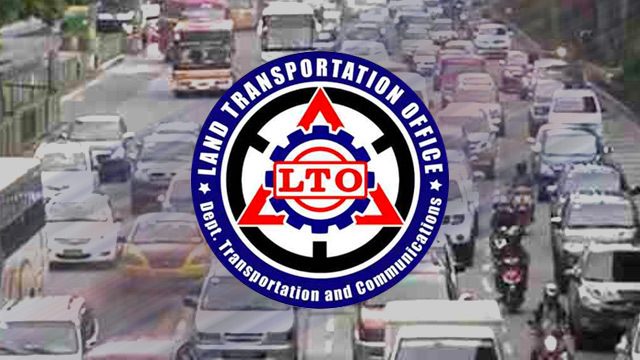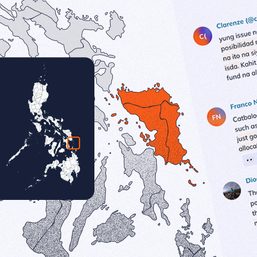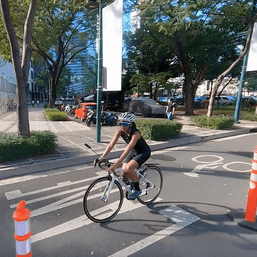SUMMARY
This is AI generated summarization, which may have errors. For context, always refer to the full article.

MANILA, Philippines – The Land Transportation Office (LTO) confirmed that it intends to push through with setting caps on the course rates that driving schools can charge.
“The LTO will push through with the imposition of the maximum permissible fees which driving schools can charge,” LTO chief Jose Arturo “Jay Art” Tugade told Rappler in a text message on Tuesday, April 11. “P4,000 will be the max for both manual and automatic.”
Tugade also said in an earlier statement that the LTO is unlikely to delay the implementation of the driving school rates, which is set to take effect on Saturday, April 15.
“Malabo na nating ipagpaliban pa ang implementasyon ng bagong driving school rates. Hindi pupuwedeng maging bingi ang LTO sa mga panawagan ng higit na nakararami laban sa napakamahal na bayarin sa mga driving school,” he said.
(It’s unlikely that we will push back the implementation of the new driving school rates. The LTO cannot play deaf to the calls of the majority against the high fees of driving schools.)
Tugade also emphasized that the memorandum circular (MC) came about after a consultation with stakeholders and a cost-analysis done by a technical working group (TWG). He also said that the prescribed maximum rates were computed using expenditure items and costs that came from the driving schools themselves.
“The said price ceiling has undergone sufficient consultation and an in-depth cost analysis by the TWG. In coming up with these rates, it was the objective of the LTO to lower the exorbitant fees charged by some driving schools but at the same time, to not deprive the accredited driving school a reasonable rate of return on their investment,” Tugade said.
The Association of Accredited Driving School of the Philippines Inc. (AADSPI) also stated that there had been no word from LTO regarding a possible postponement of the driving rate caps.
“We have not heard anything from them regarding postponing the implementation of MC, but we will have a meeting on the 13th [of April],” AADSPI president Marie Franz Gavino-Ochoco told Rappler on Monday, April 10.
Here are the prescribed maximum rates for practical and theoretical driving courses:
Driving school protests
The association earlier asked LTO to postpone the maximum driving course rates until stakeholders and the LTO are “able to discuss and revisit the details of the policy.”
In a press conference on March 30, representatives from driving schools raised concerns about their profitability given the new maximum driving course rates.
“Due to LTO’s Memorandum Circular No. JMT-2023-2390 that imposes training rates, applies additional qualifications for accreditation, and requires the use of a new system with insufficient preparation to its stakeholders, our industry faces operational and financial challenges that may affect the quality of services we deliver,” Gavino-Ochoco said during the conference.
One of the main issues raised by the driving schools is the maximum rate for practical driving courses for light vehicles, which is set at P4,000. At this price, Gavino-Ochoco said that driving schools could only afford to offer programs for manual sedans, which currently serves as their basic course.
According to a position paper obtained by Rappler, AADSPI argued that “different training vehicles require different investment costings, maintenance, and insurance.”
“We deem the rate of P4,000 not reasonable and will deny legitimate driving schools a fair return on investment for Automatic and SUV vehicles. In this regard, we fervently hope for understanding on this matter and allow us to have freedom to decide on the tuition fees of our respective ‘premium courses,’” the position paper read.
The association said that driving schools "would also be unable to provide value-added services," such as expressway driving and rush courses.
“We will not be able to offer those programs anymore since we really cannot support the operating expenses at a P4,000 rate,” Gavino-Ochoco told Rappler.
Tugade confirmed that driving schools cannot charge added fees for these services, saying that they “must work within the allowable rates when offering value-added services without resorting to charging additional fees." – Rappler.com
Add a comment
How does this make you feel?


![[Under 3 Minutes] When will we see modern jeepneys on the road?](https://www.rappler.com/tachyon/2024/04/francisco-motors-modern-jeepney-prototype-1.jpg?resize=257%2C257&crop=590px%2C0px%2C1012px%2C1012px)


![[OPINION] Steps the Philippines can immediately take to reduce road casualties](https://www.rappler.com/tachyon/2024/05/Steps-the-Philippines-can-immediately-take-to-reduce-road-casualties.jpg?resize=257%2C257&crop_strategy=attention)

![[Rappler’s Best] Where the streets have no name](https://www.rappler.com/tachyon/2024/03/2-1.jpg?resize=257%2C257&crop=307px%2C0px%2C720px%2C720px)

![[DOCUMENTARY] Biking 120 kilometers in Metro Manila](https://www.rappler.com/tachyon/2024/03/bike-commute-metro-manila-documentary-carousel-scaled.jpg?resize=257%2C257&crop=216px%2C0px%2C1440px%2C1440px)
There are no comments yet. Add your comment to start the conversation.